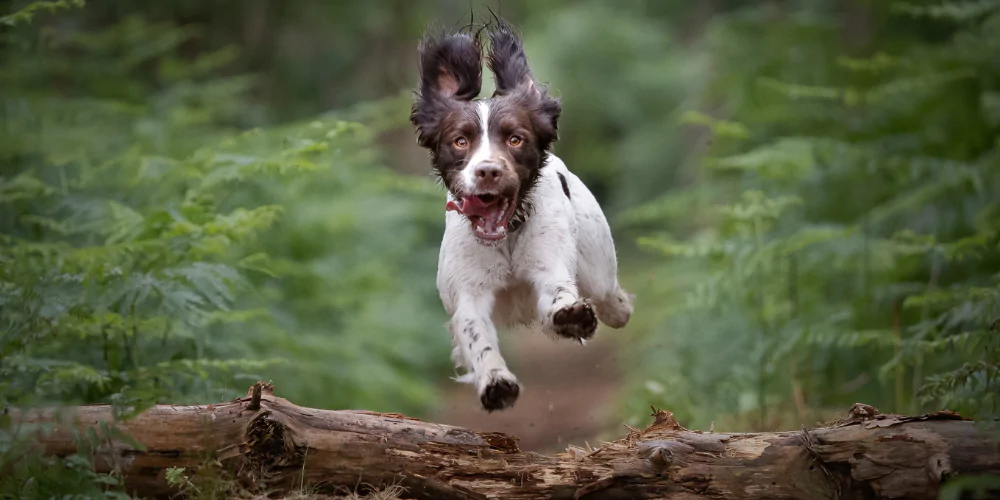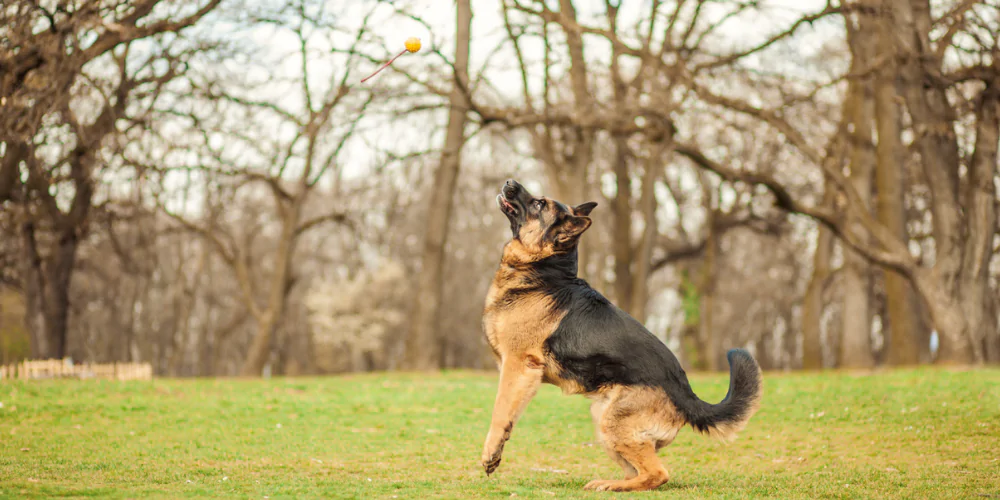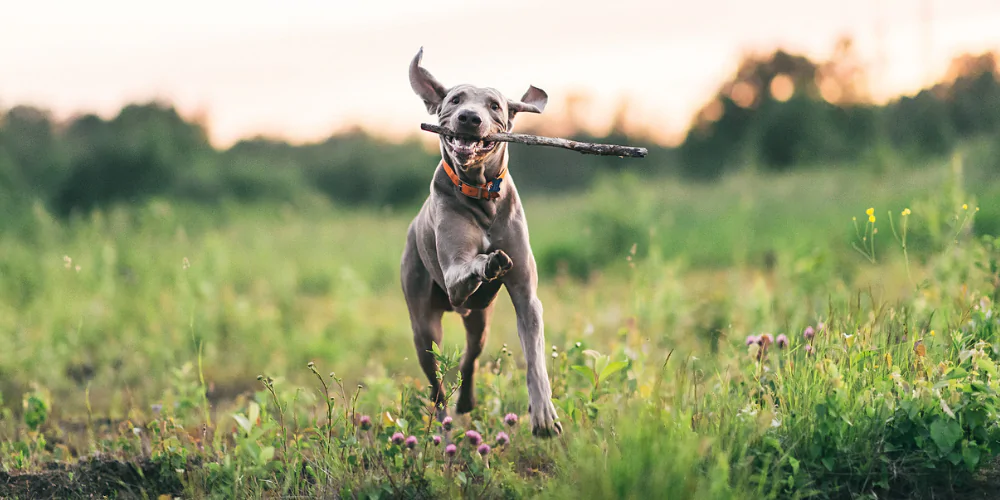
Choosing the right dog for you

Allie Simpson
5 August 2021 | 8 minutes read
What dog breed should I get? If you’re ready to welcome a four-legged friend into your life but aren’t sure where to start, we’re here to lend a helping paw! Once you’ve decided you can’t be without a canine companion, the next important decision is choosing a dog and making sure the breed is compatible with your lifestyle.
Let’s dive into some of the main things to consider when choosing a dog breed, including the size of the dog you’re looking for, their temperament, and if the breed fits in with your day to day schedule.
Table of contents
- Cost of owning a dog
- Choosing a dog based on breed category – pedigree vs crossbreeds vs mongrels
- Choosing a dog based on breed size
- Choosing a dog based on breed temperament
> Picking the gender of your dog
> Considering a crossbreed dog - Choosing a dog based on breed intelligence
- Choosing a dog based on grooming needs
> Dog breeds for allergy sufferers - Choosing a dog based on exercise needs
- Keeping in mind dog breed health risks
> Rare/unusual dog colours - Deciding between a puppy or adult dog
> Choosing a dog from a breeder or a rescue

Cost of owning a dog
Every dog is an investment, beginning with the purchase of your pup and carrying on through to their twilight years. Different breeds start at different price points, and cost can change with location, colour, and whether they are Kennel Club registered.
But wait! As we mentioned, it’s not just about whether a dog is affordable to buy in the first place. It’s also about all the costs over their lifetime, including their food, vaccinations, worming, dog insurance, and vet check-ups, to name but a few. We’ve not even mentioned the toys! Ask yourself – can I afford all of these?
The average lifespan of a Jack Russell is 13.4 years. Some breeds can live for over 15 years and others can be more prone to health issues. In a nutshell? You’re committing yourself to the physical, emotional, and financial long haul when you decide to become a pet parent.

Choosing a dog based on breed category – pedigree vs crossbreeds vs mongrels
Welcome to the dog categories!
A pedigree is a dog that comes from two purebred parents of the same breed, such as Cocker Spaniels, German Shepherds, and Golden Retrievers.
Then we have the crossbreed which, as you might have guessed, comes from crossing two purebred parents of two different breeds. These are dogs such as your Cockapoos, Labradoodles, and Goldendoodles.
(Side note – not all crossbreeds are half poodles, they just seem to be a popular choice for combining two breeds together!)
Mongrels (also known as a mutt) are a mixture of at least three or more breeds. It may not be obvious what breed mix your dog is just by looking at it, which is why some people opt to do a DNA test.

Choosing a dog based on breed size
It’s important to consider the size of your home and your access to outside spaces such as a garden or local parks. Larger breeds will need a big secure garden to play and exercise in, along with space indoors to stretch out and relax. It’s a hard life, eh?
Don’t forget dogs can bring with them a lot of accessories including crates, beds, toys, and blankets, so space is essential. Larger breeds such as Huskies, Labradors, and German Shepherds will need more space than small to medium sized dogs like Chihuahuas, Bulldogs, and Jack Russell Terriers.

Choosing a dog based on breed temperament
All dogs have their own quirky and loveable characters, and many breeds boast an array of characteristics which shape their personalities. For example, some have been bred as working animals for activities like hunting or guarding. Others have been bred more for companionship or to achieve a specific look, such as a curly coat.
Here’s a ruff breakdown of some of the main breed types:
- Pastoral – Used for guarding or mustering, like a Border Collie or German Shepherd.
- Gun dogs – Originally used for hunting, such as a Cocker Spaniel and Irish Setter.
- Hounds – Originally used to track/chase prey, dogs like Dachshunds and Beagles.
- Working – Bred to learn/perform tasks, including the Husky and Doberman.
- Terriers – Originally used for controlling small prey, such as the Cairn Terrier and Airedale Terrier.
- Toys – Small companion dogs bred down from larger versions, we’re talking the Pomeranian and Chihuahua.
- Utility – These don’t really fit into another category, so they put dogs such as the Chow Chow and Dalmatian in here.
- Crossbreed – From two purebred parents of two different breeds, like the Schnoodle.
Dogs that have a fun yet calm temperament can be great for families, such as Golden Retrievers, Beagles, Bichon Frise, and Cocker Spaniels. For adventurous and lively breeds that enjoy an active lifestyle, you might want to look at dogs such as the Vizsla, Dalmatian, Weimaraner, and Border Collie.
To choose the perfect dog for you, think about what breed fits in with your lifestyle. This includes your work schedule, weekend activities, and members of your household.
> Picking the gender of your dog
Differences in temperament can also come down to the gender of your dog. Intact males can be more dominant while females may be easier to housebreak. But really, every dog is different! It’s just something to keep in mind, especially as personality differences may be more noticeable between females and non-neutered males.
> Considering a crossbreed dog
A quick heads up when it comes to the temperament of crossbreeds; while the pup will have a mix of both breed traits, you won’t necessarily know which traits will dominate. You should research both breeds as much as possible to find out what behaviour traits they could show as they get older.

Choosing a dog based on breed intelligence
If you’re looking for an intelligent dog to get stuck into training and agility, there are several dogs at the top of the list. Breeds such as the Border Collie, Rottweiler, Papillon, Spaniel, and German Shepherd are all highly intelligent dogs, with many being used as service dogs for the police and mountain rescue.
Breeds known for their intelligent natures also need more mental stimulation. This could come in the form of longer walks, scent-based training, and interactive games to keep up with their keen nature.

Choosing a dog based on grooming needs
All dogs shed their hair, but some breeds can shed more than others. If you don’t want to spend hours each week brushing your canine friend, consider a breed with low maintenance grooming such as Boxers, Dobermans, and Italian Greyhounds. Some of the dogs that will need more care and attention to their coats are Poodles, Afghan Hounds, and Pulis.
> Dog breeds for allergy sufferers
Allergic to dogs? You could still be a dog parent. Look for the breeds which shed less and see how sensitive your reactions are when around them. It’s not actually dog fur that triggers the sneezes and runny eyes, but rather the dander that can be carried on their fur. Examples of dogs that shed less (and so may be kinder to allergy sufferers) are Schnauzers, Maltese, and Poodles.

Choosing a dog based on exercise needs
If you’re someone who loves hiking, exercising, and long walks, a high energy breed might be your next fitness companion. Pooches like the Dalmatian, English Springer Spaniel, and Weimaraner need long walks (plus plenty of stimulation), sometimes needing to be taken out multiple times a day.
If the sofa is your favourite place to be (no judgement here) then lower energy breeds like the Shih Tzu and Basset Hound could be more to your vibe. These kinds of dogs are less demanding compared to the working breeds when it comes to length and frequency of walks.

Keeping in mind dog breed health risks
When choosing a dog, it’s important to know that some breeds are predisposed to certain diseases and health issues. These problems are varied and can range from hip and elbow dysplasia to breathing difficulties, epilepsy to intervertebral disk disease (IVDD). Knowing the common genetic disorders in your chosen breed will help you to be more prepared for potential issues and medical needs in the future.
Alongside the breed-specific conditions, there are also common dog illnesses like food allergies, ear infections, and obesity. Learning about proper dog care can equip you to deal with these problems if they come up in your dog’s lifetime.
> Rare/unusual dog colours
A quick mention about ‘rare’ colours and the potential dangers from buying from breeders who sell these dogs. The Kennel Club is wary about these breeders and how committed they are to the health and temperament of the puppies. Always do your research and look into the potential health concerns of an unusually coloured dog, such as the risk of alopecia with blue coats.

Deciding between a puppy or adult dog
Yes, we think puppies are su-paw cute, but we also know they can involve a lot of work! This is also true of taking on an older dog, as each brings its own demands in terms of settling in and training. These things are generally harder to do with a puppy as you’re starting from scratch, but it’s important to remember that some adult rescue dogs may have had little socialisation and training in their previous homes.
There are lots of training courses and behavioural specialists in the UK who can help you with training both adult dogs and puppies. Just remember, if you think you need a little help, there’s plenty of resources out there for you!
> Choosing a dog from a breeder or a rescue
You may have an ‘adopt, don’t shop’ philosophy, or you may prefer to use an accredited breeder to find your perfect canine companion.
Charities such as the Blue Cross know the dogs in their care and can help to match the right pup to the right home, but keep in mind there will still be challenges. They may have unique requirements, behavioural problems, or medical needs. Taking on a dog from a private home could be trickier as the dog may have had several owners and you might not get its previous history.
If you’re in search of a puppy from a breeder, the RSPCA recommends seeing mum and her pups together and always be wary of farmed puppies. Organisations like The Kennel Club can provide a list of assured breeders if you want to steer clear of the online puppy adverts.
We’re on a mission to make sure pets are treated fairly. We offer lifetime cover for dogs, so if you’re ready to em-bark on a new pet parent journey, find out more about our cover today.


